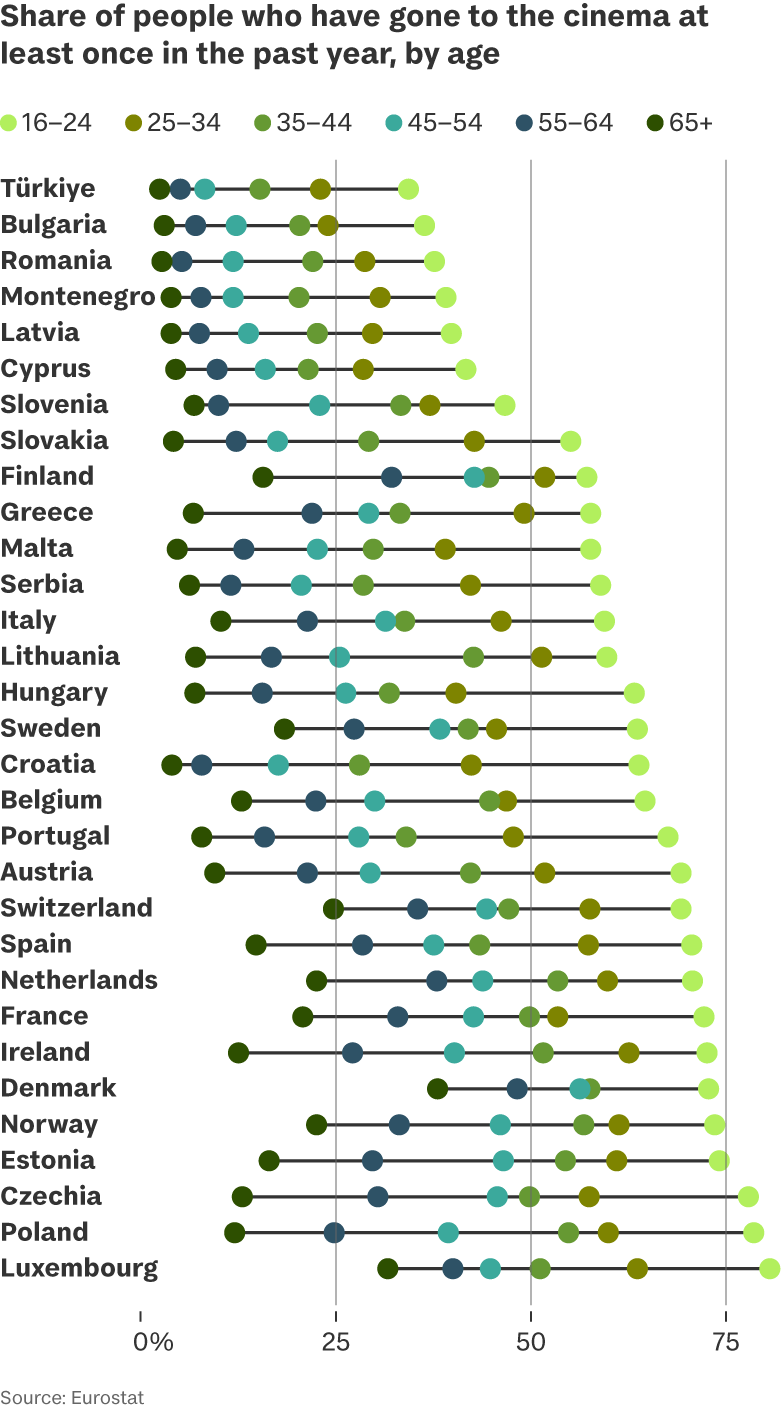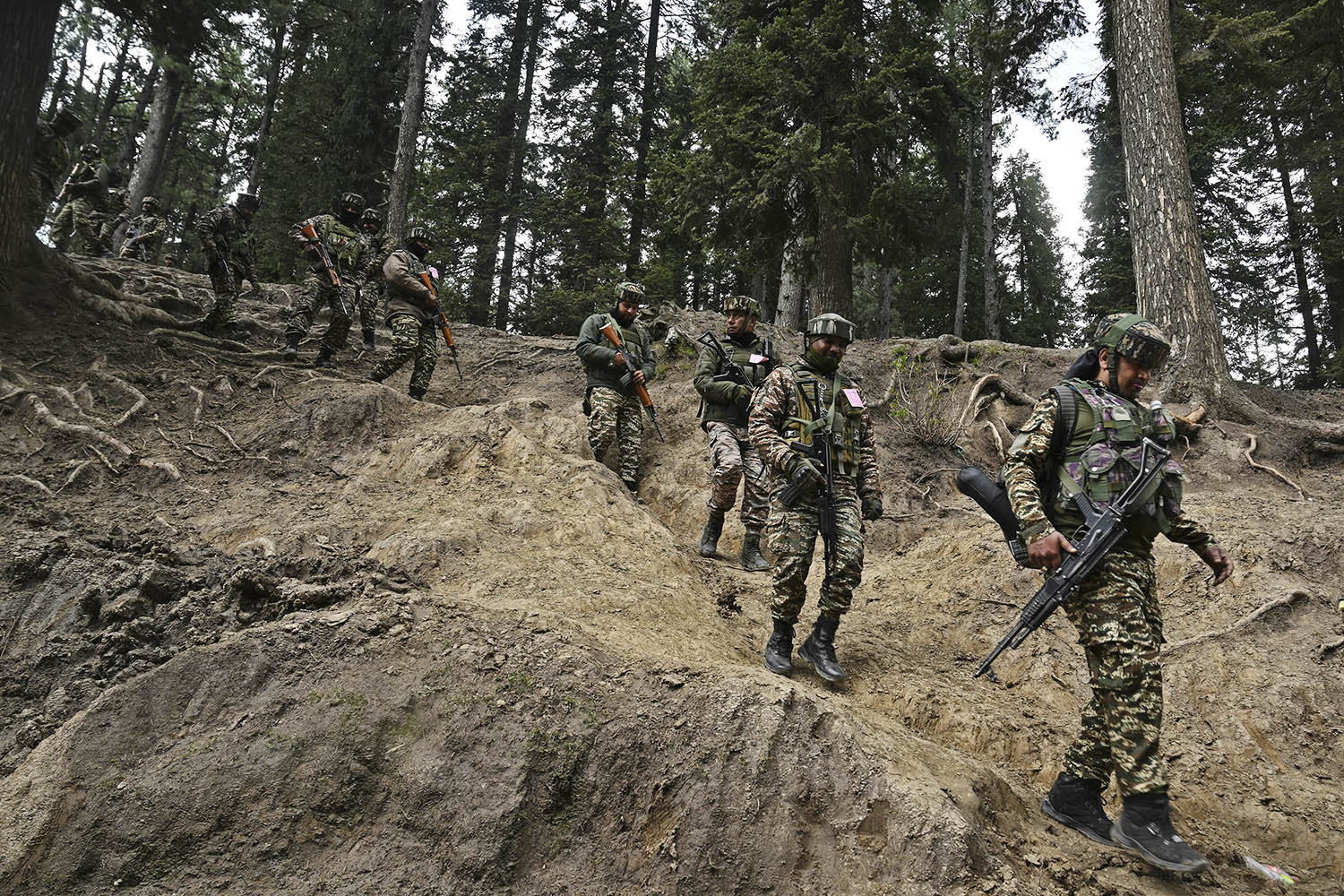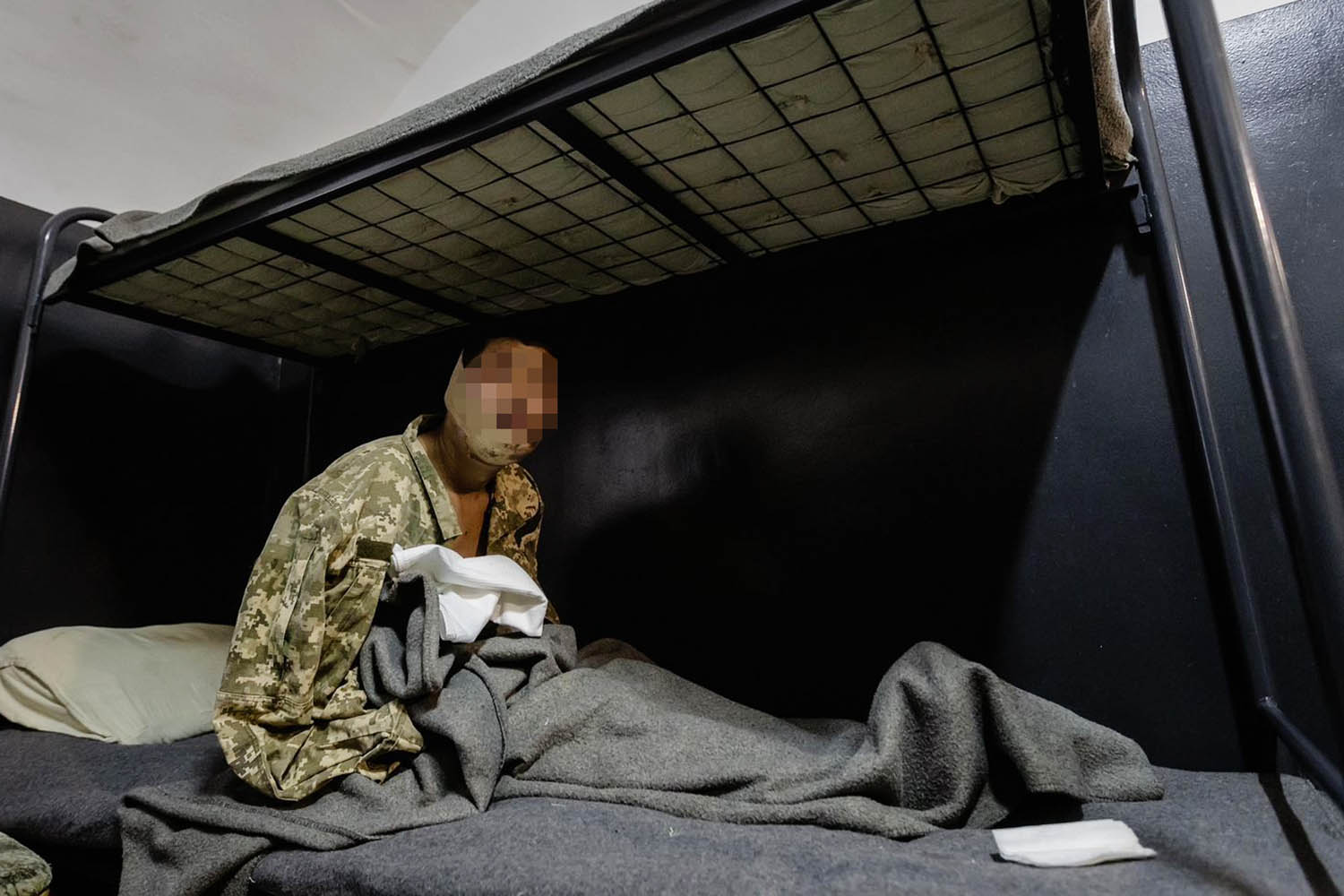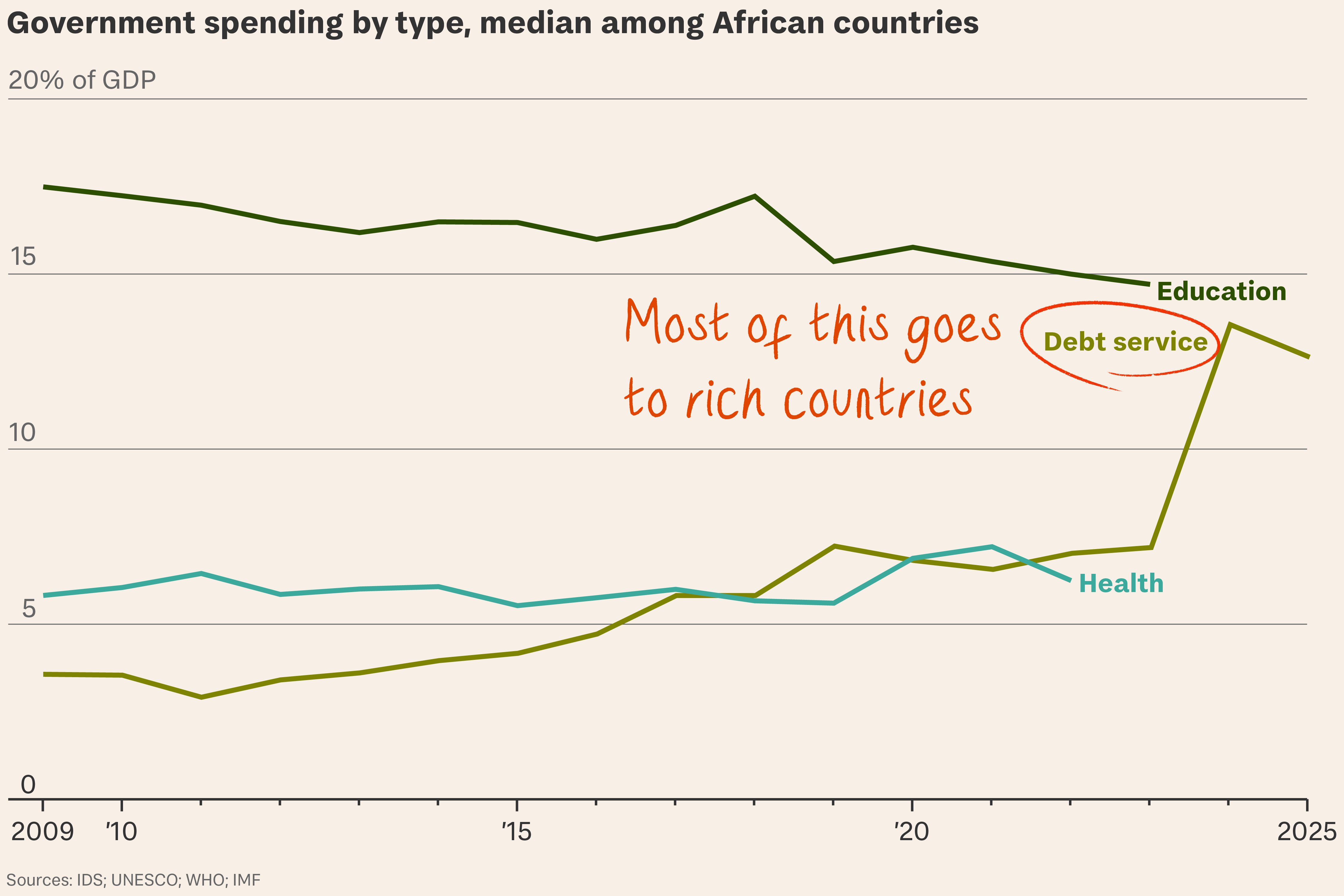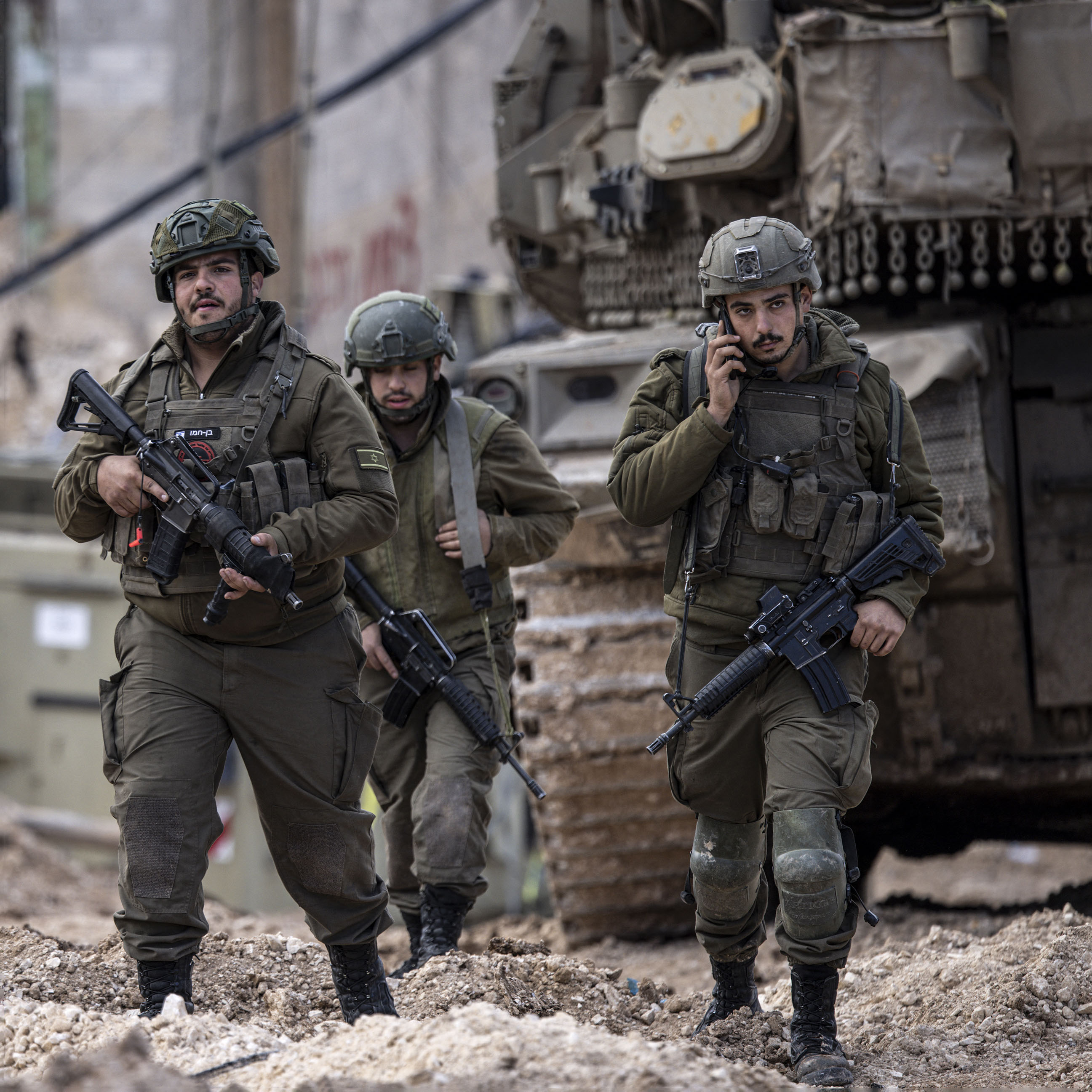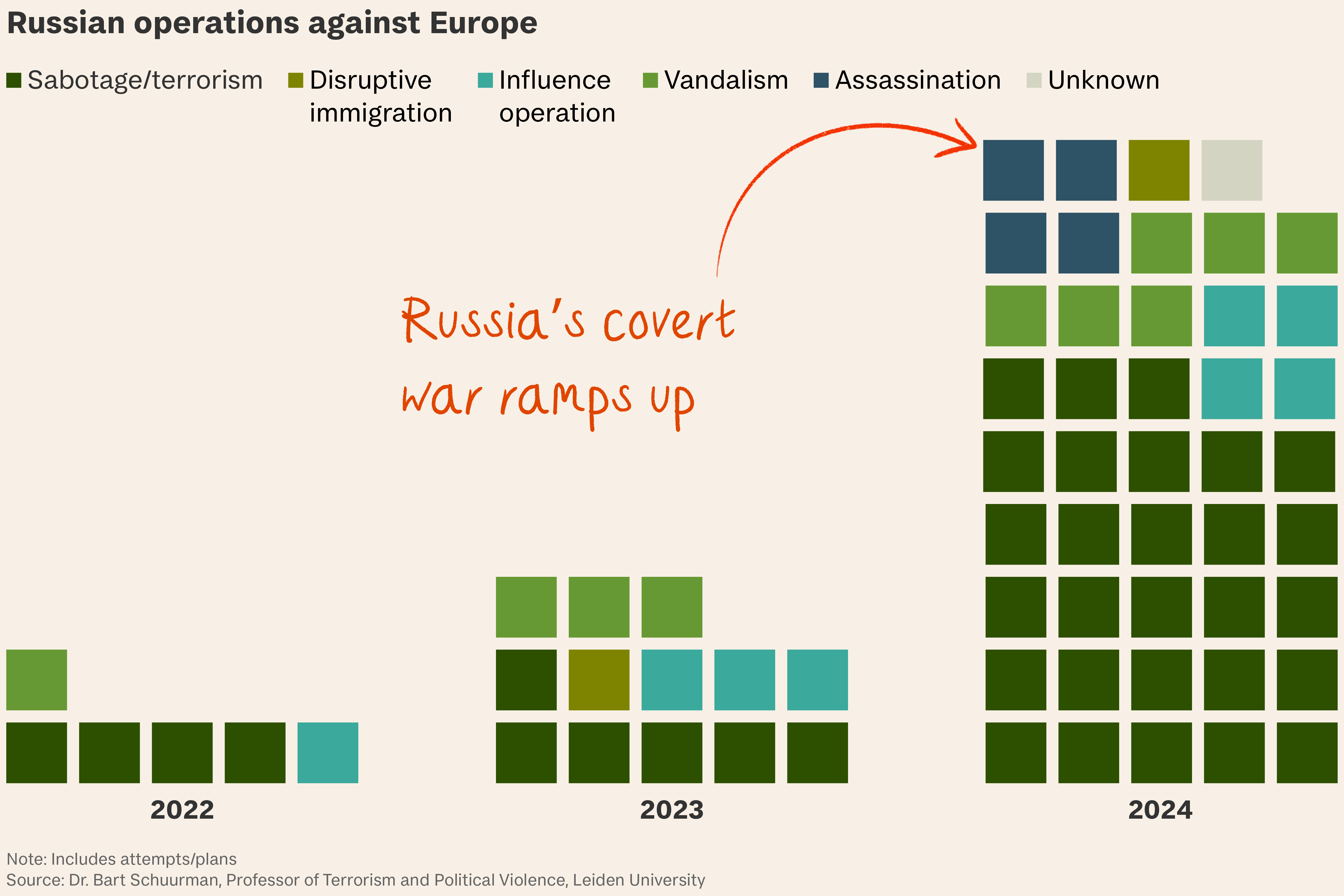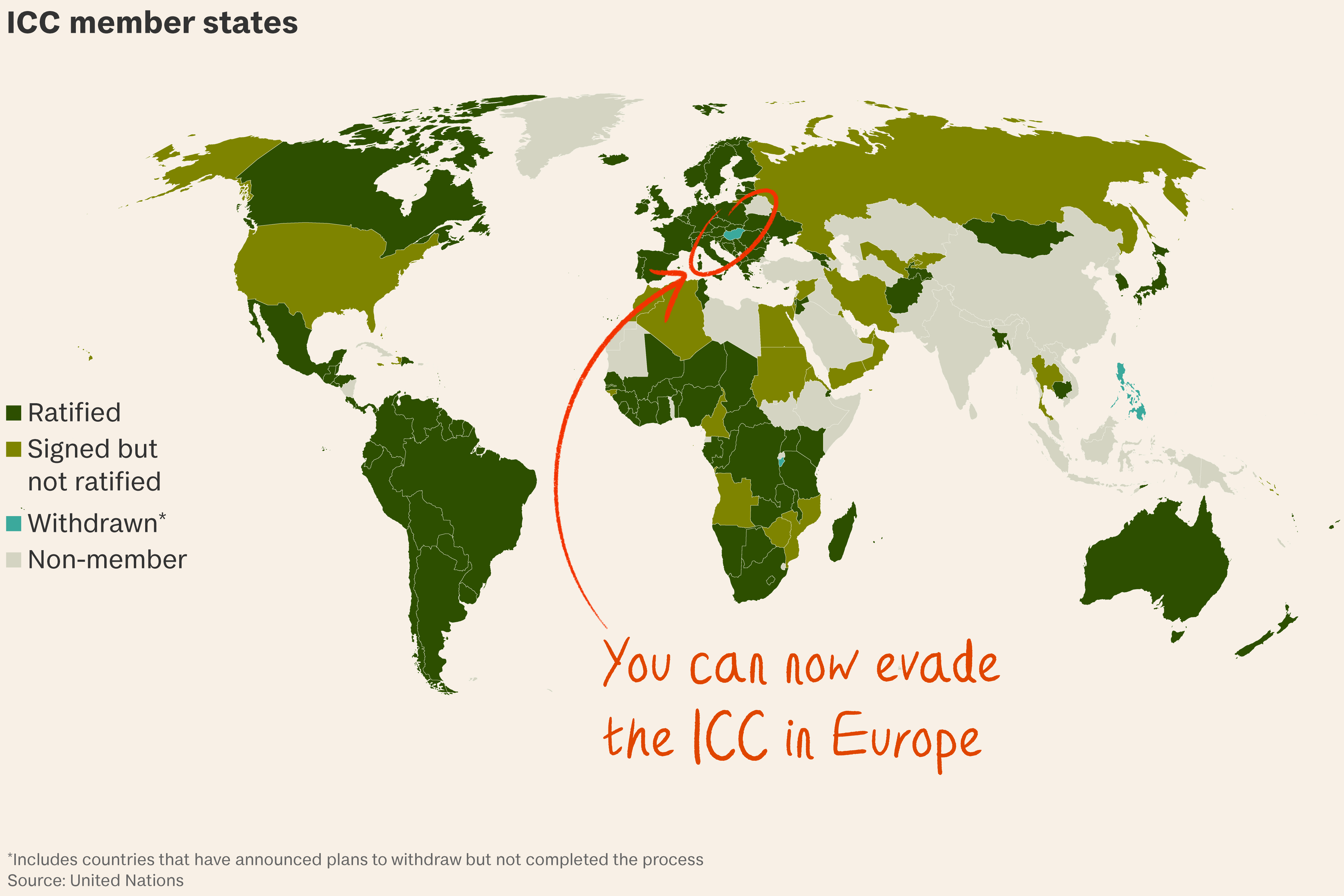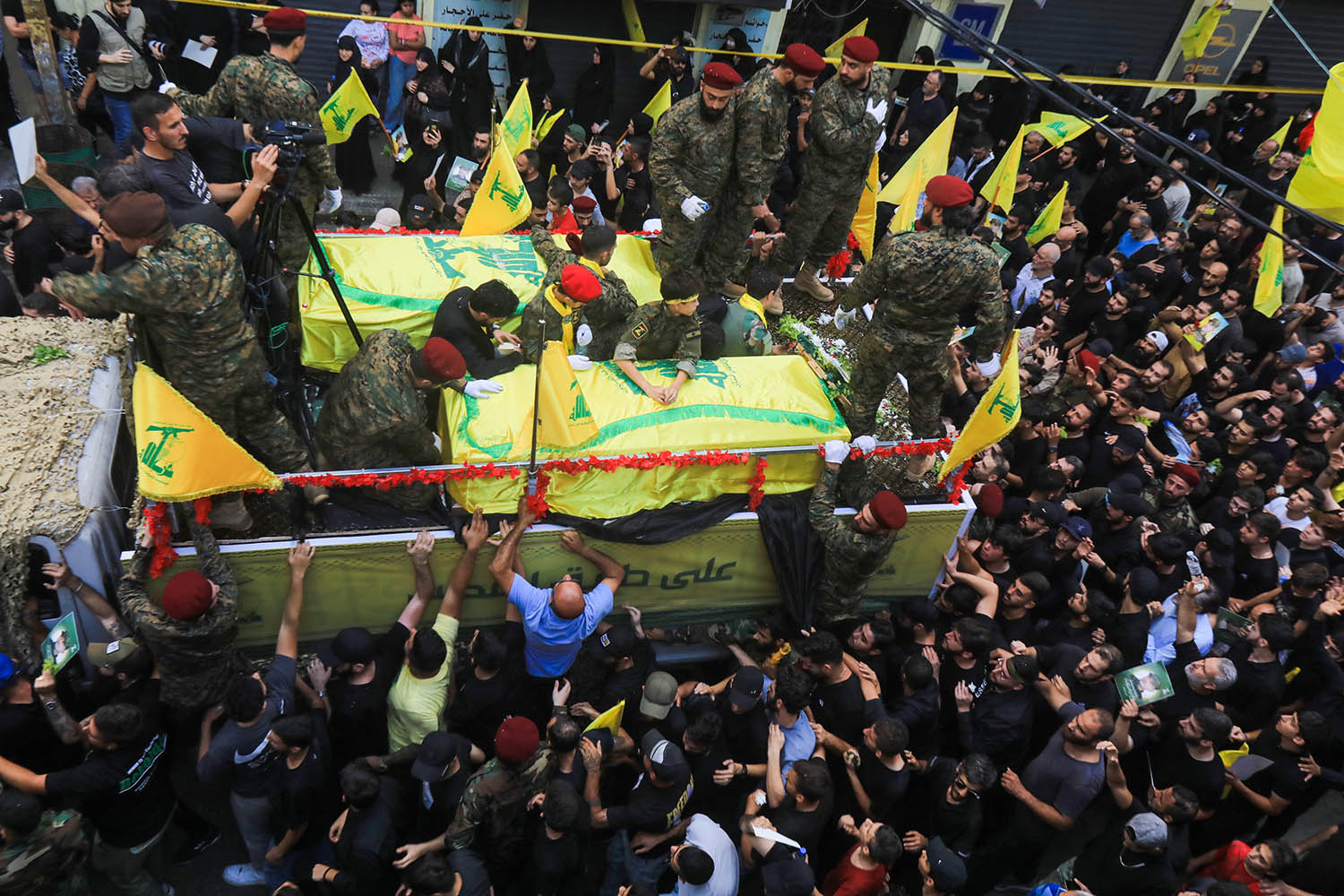
An Israeli airstrike on Beirut killed some of Hezbollah’s top battlefield commanders last week, days after hundreds of its members were maimed in the synchronised sabotage of their pagers and walkie talkies.
So what? The Middle East crisis has turned a dangerous corner. There are now fears of
- an all-out war between Israel and the world’s best-armed non-state actor; and
- a broader regional confrontation.
These fears are tempered only by Hezbollah’s own fears of walking into an Israeli trap. That said, there is no doubt that Israel, still embroiled in its war against Hamas in Gaza, is shifting its focus to the border with Lebanon. “This is a new phase in the war,” said Yoav Gallant, Israeli’s defence minister. “It has significant opportunities, but also heavy risks.”
Hezbollah’s treble humiliation. It’s worth recapping how effective, if morally contentious, the attacks have been:
- On Tuesday, pagers carried by Hezbollah members detonated simultaneously, killing 12 people and wounding 2,800 more. Many lost fingers, hands or eyes as they fished the beeping devices out of their pockets and raised them to their faces to read.
- The following day the Iran-backed group’s walkie-talkies began exploding. There were fewer of them, but the explosive charge was greater. At least 25 people were killed and another 450 wounded.
- With mayhem unfolding in Hezbollah’s rank and file, Israel then struck the top of its command structure in a more conventional way. Jets attacked an apartment block in south Beirut, killing Ibrahim Aqil, head of the militia’s special forces and perhaps nine other senior commanders meeting him there.
The impact. Israel has not officially acknowledged the pager and walkie-talkie attacks, but military officials are cock-a-hoop. Israel’s intelligence agencies, their reputation battered by their failure to warn of the October 7 Hamas attacks on Israeli civilians, have shown they have not lost their touch.
Hezbollah is reeling, as even its own leader, Hassan Nasrallah, has admitted. The attacks incapacitated thousands of fighters, disrupted the group’s ability to communicate, shook morale and killed some of its most seasoned officers and battlefield tacticians.
Tactically this was an Israeli success, but not necessarily strategically.
- Some 60,000 residents of northern Israel have been unable to return home because of a steady stream of rocket and drone attacks unleashed by Hezbollah since last October in solidarity with Hamas.
- Benjamin Netanyahu, the Israeli prime minister, is under growing pressure to solve the problem. To do so means either forcing Hezbollah to back down or defeating it militarily.
The response. More rockets. Hezbollah has fired more rockets, cruise missiles and drones across the Israeli border in the past three days than at any time since the conflict began. For the first time the Israeli city of Haifa has been hit.
If deterrence was the aim, Hezbollah doesn’t look deterred.
What next? Neither Iran nor Hezbollah are keen on all-out war with Israel.
- Hezbollah is Iran’s insurance policy in the event that Israel strikes its nuclear facilities. It would rather not unleash the full force of the group’s missile arsenal until then.
- Hezbollah believes engaging in all-out war would be walking into Netanyahu’s trap, says Kassem Kassir, a Lebanese commentator with close links to the movement. “Hezbollah knows that Netanyahu is trying to draw it into open war in the hope of drawing the US into the conflict,” he said. “If Hezbollah fell for this, it would be fighting not just Israel but Israel’s powerful Western backers as well.”
Israel faces its own dilemma. When Israeli forces and Hezbollah fought each other to a standstill in a bloody 34-day confrontation in southern Lebanon in 2006, the movement had an arsenal of just 15,000 mainly unguided rockets. Western intelligence estimates put the size of its firepower now at ten times that. Moreover, its weaponry is far more sophisticated and includes guided missiles that could reach any city in Israel.
What’s more… Still exhausted from its operations in Gaza, Israel’s needs more time before it’s ready for a full-scale operation in Lebanon, some analysts think. It may also be that the pager and walkie talkie attacks were launched because they were about to be exposed, forcing Israel into a “use it or lose it” situation.
But a return to the low-intensity conflict that preceded the attacks looks unlikely in the short term. One miscalculation could tip this crisis into full-blown conflict.
Chart of the week
